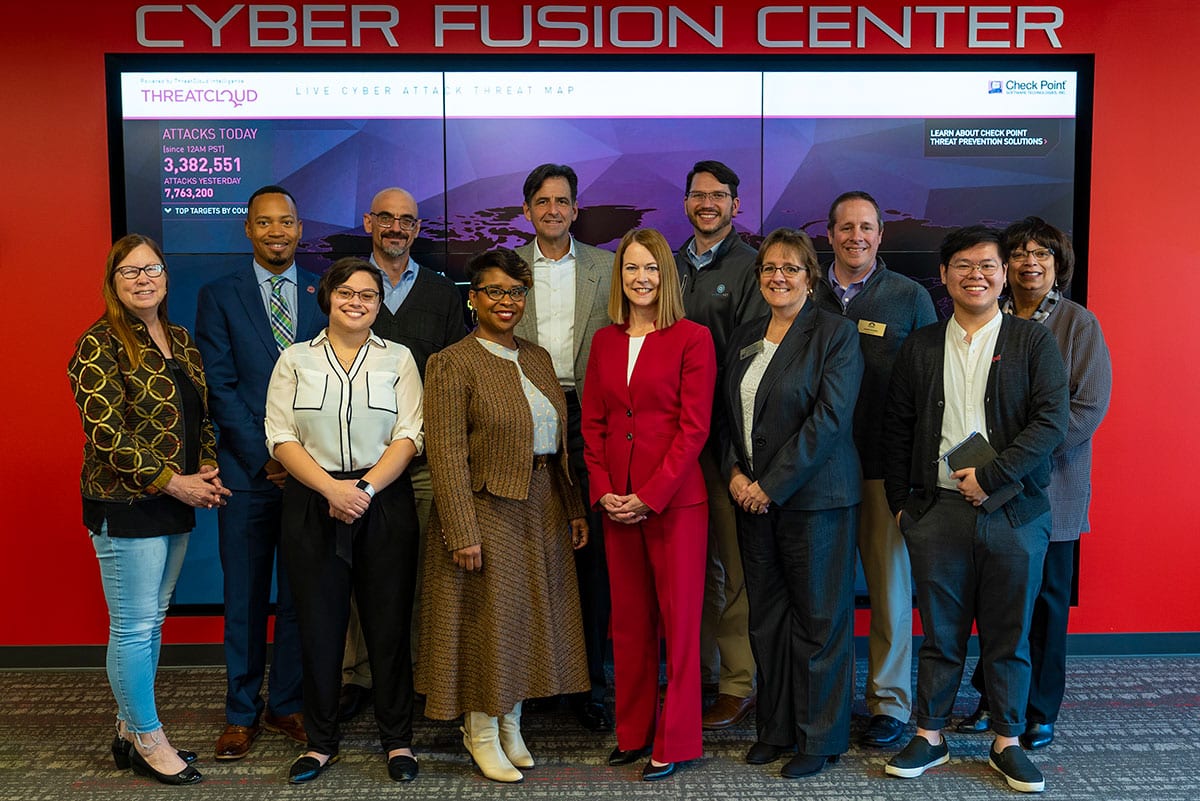Representatives from St. Louis area startups, small businesses and nonprofits gathered on campus recently to discuss the cyber security services they receive free of charge thanks to Maryville University.
The services are provided by Maryville cyber security students working in the state-of-the-art Cyber Fusion Center (CFC). The Center is managed by faculty experts and staffed by teams of students enrolled in designated cyber security classes. Services include penetration testing, vulnerability management, digital forensics and cyber threat monitoring.
Cyber security is an important issue for these organizations because many do not have the budgetary or personnel resources to meet the growing need for data protection. Without that protection in place, a loss of information could be catastrophic.
“Data security and data privacy have become a top priority as we move more information online,” said Deb Ketring, chief information officer for Rockwood School District. “Partnering with Maryville has allowed us to improve our information and security practices without using our limited funds to hire a cybersecurity professional.”
Many groups said the significant cost savings provided through their Maryville partnership allows them to place greater emphasis on their programs and services benefitting children, youth and adults in the region.
“This program is a breath of fresh air for school districts, like ours, that devote all their resources to students,” said Jason Rooks, director of technology and innovation for Parkway School District. “The monetary value of the information Maryville provides to us is huge. I’m able to take the funds I’m not spending on these services and put them back into the classroom with our students.”
The program also connects individuals in the region’s nonprofit and startup communities through education, mentoring and networking. Workshops are held discussing a variety of cyber security topics at St. Louis’ burgeoning tech communities of T-REX and Cortex. Attendees then share that knowledge with their networks.
Rooks spoke about his district’s partnership with Maryville at a recent gathering of the Missouri School Board Association. His presentation discussed incident response best practices and included a recommendation for groups to reach out to Maryville during future incidents.
“School districts have robust technology infrastructures comparable to Fortune 500 companies, but we often get overlooked in the cyber security world. I want other districts to know that when things get serious, they have a resource to reach out to for guidance and support before, during and after an incident takes place,” he said.
More than 150 nonprofit organizations, including charities, churches, school districts and private schools, small businesses and social service providers, have received free information security analysis through the CFC. Partnerships exist through the “Protect and Connect” program with funding support provided through a three-year, $435,000 grant from the PNC Foundation.
“We are impressed with how the ‘Protect and Connect’ program has grown since its inception and the many different constituents it has engaged,” said Debbie Marshall, senior vice president and director of client and community relations for PNC Financial Services Group. “It’s interesting to hear how the CFC clients don’t have the resources to dedicate to cyber security, even though there is a great need. We’re thrilled Maryville’s cyber security students are able to come in and fill that need.”
